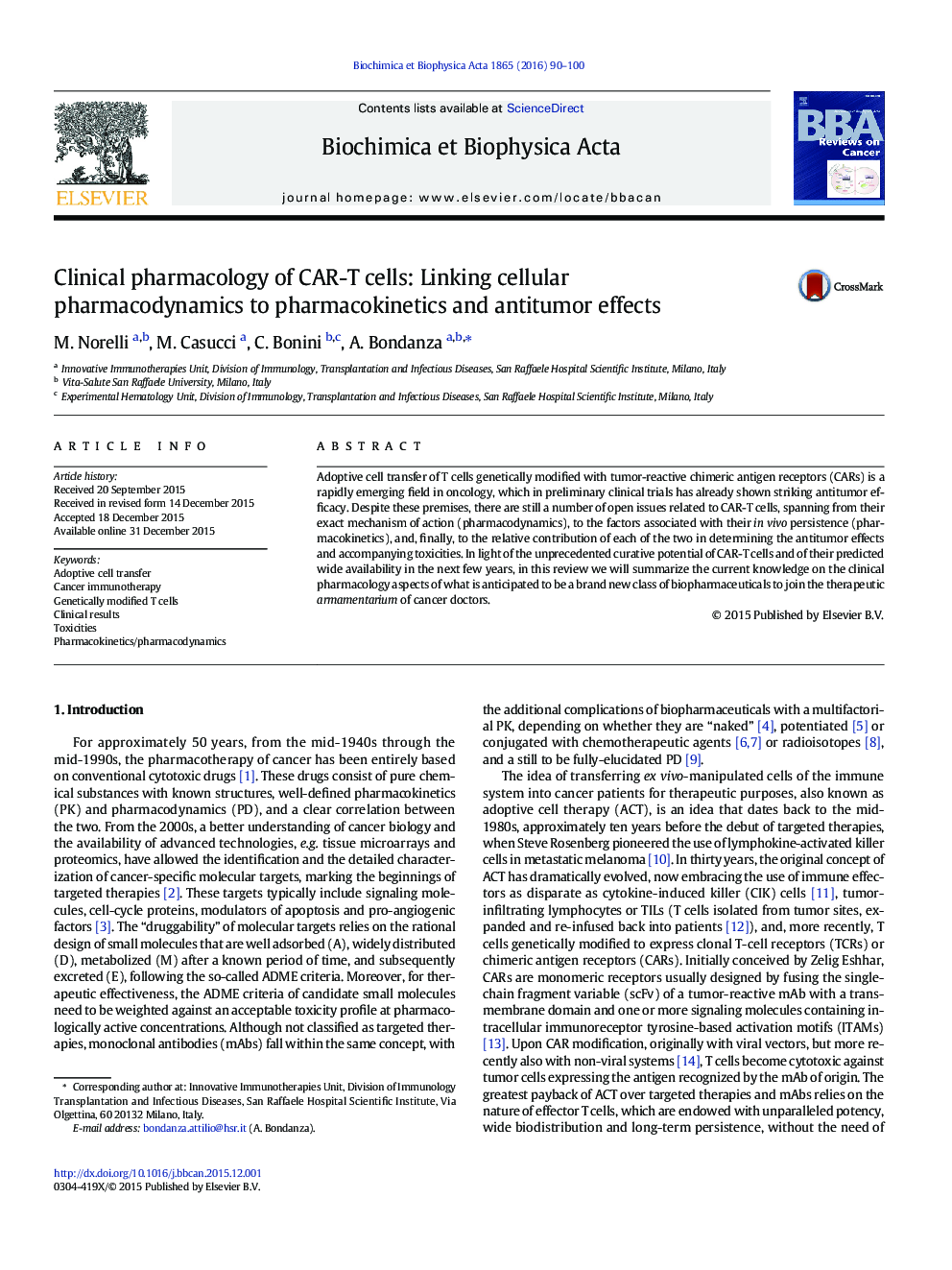| Article ID | Journal | Published Year | Pages | File Type |
|---|---|---|---|---|
| 2100841 | Biochimica et Biophysica Acta (BBA) - Reviews on Cancer | 2016 | 11 Pages |
Adoptive cell transfer of T cells genetically modified with tumor-reactive chimeric antigen receptors (CARs) is a rapidly emerging field in oncology, which in preliminary clinical trials has already shown striking antitumor efficacy. Despite these premises, there are still a number of open issues related to CAR-T cells, spanning from their exact mechanism of action (pharmacodynamics), to the factors associated with their in vivo persistence (pharmacokinetics), and, finally, to the relative contribution of each of the two in determining the antitumor effects and accompanying toxicities. In light of the unprecedented curative potential of CAR-T cells and of their predicted wide availability in the next few years, in this review we will summarize the current knowledge on the clinical pharmacology aspects of what is anticipated to be a brand new class of biopharmaceuticals to join the therapeutic armamentarium of cancer doctors.
